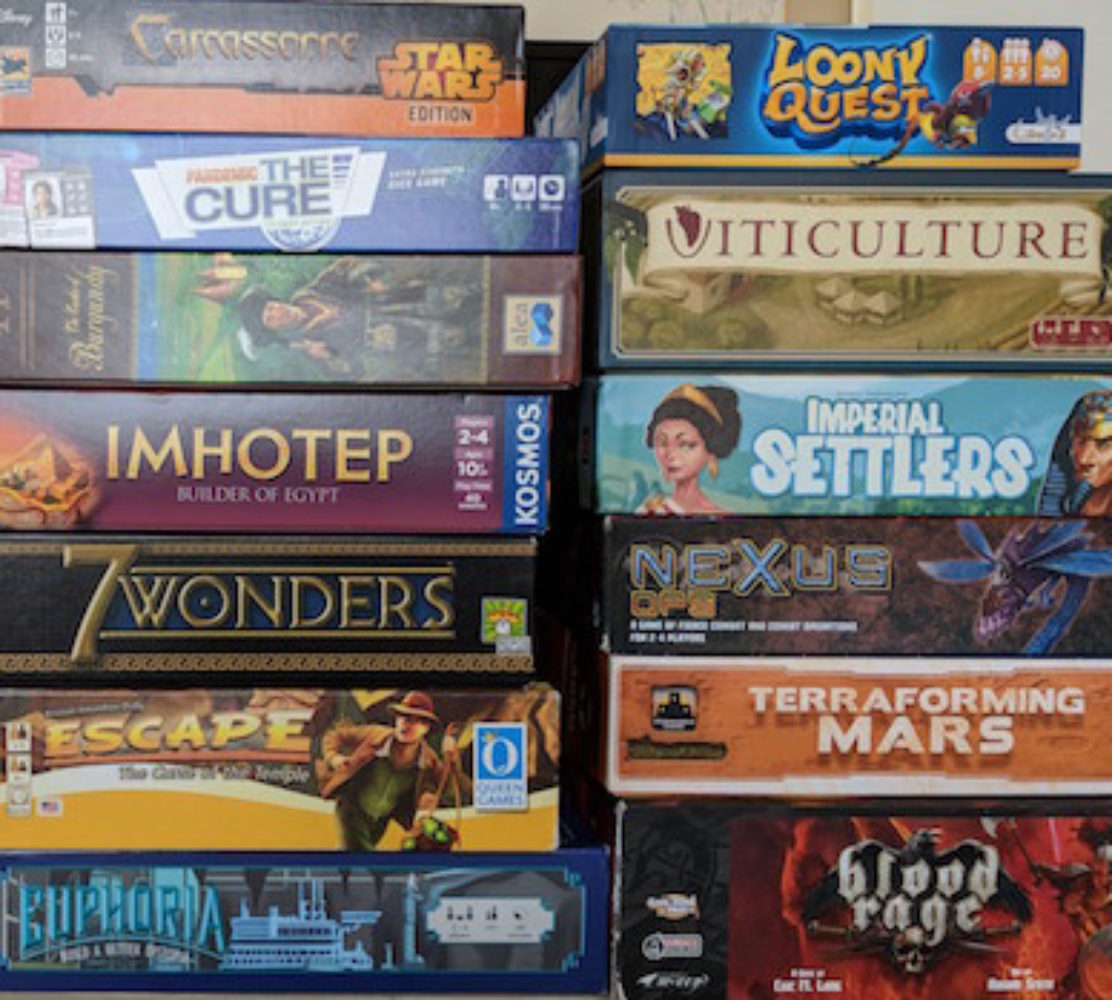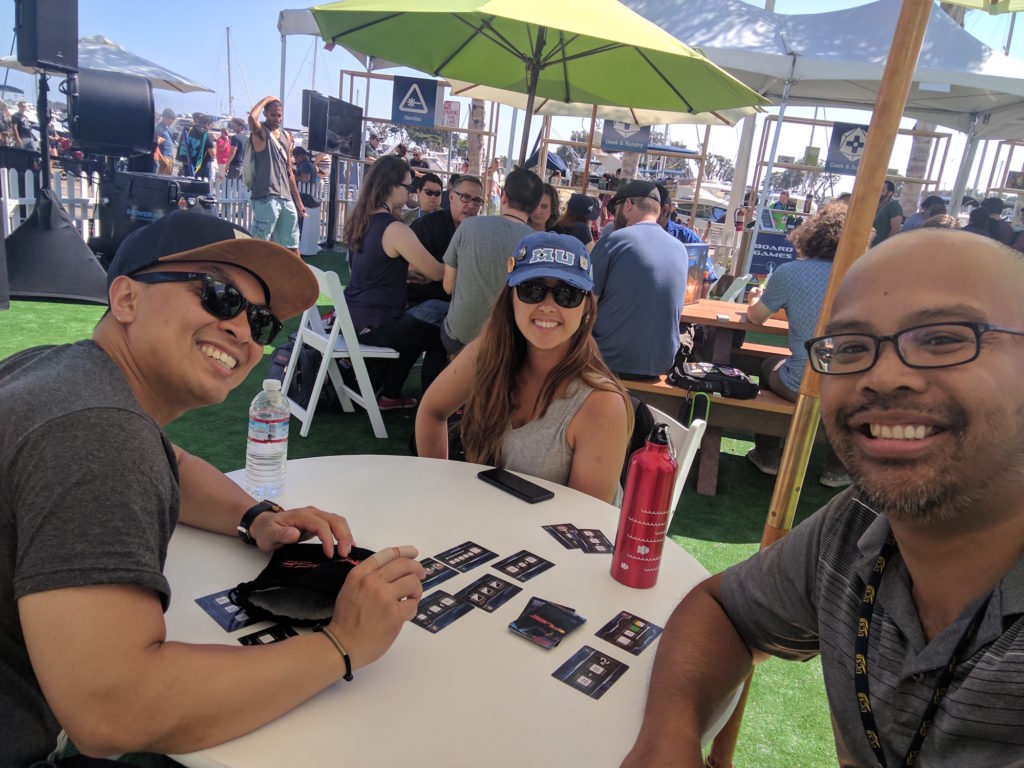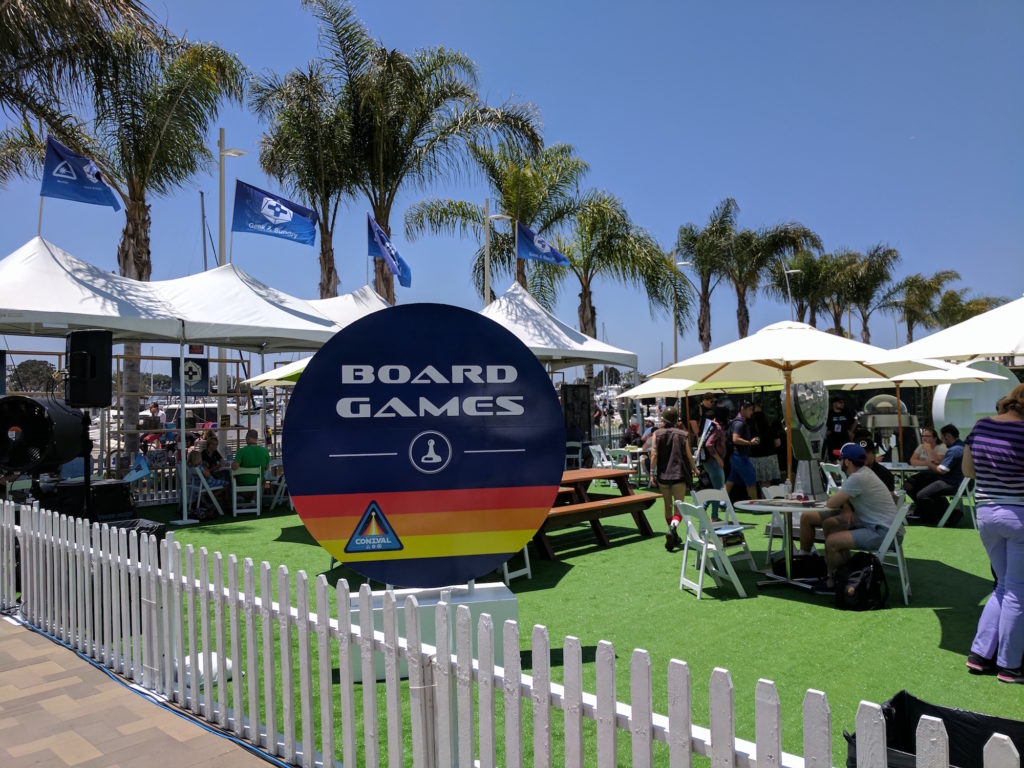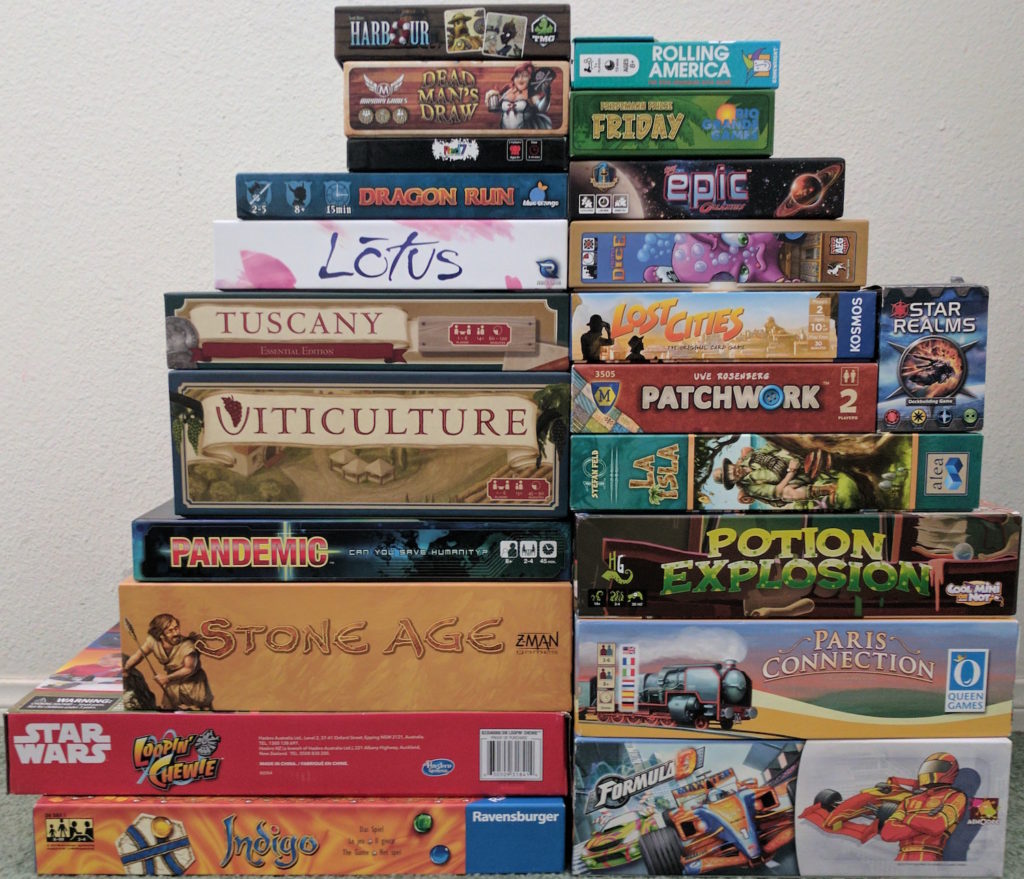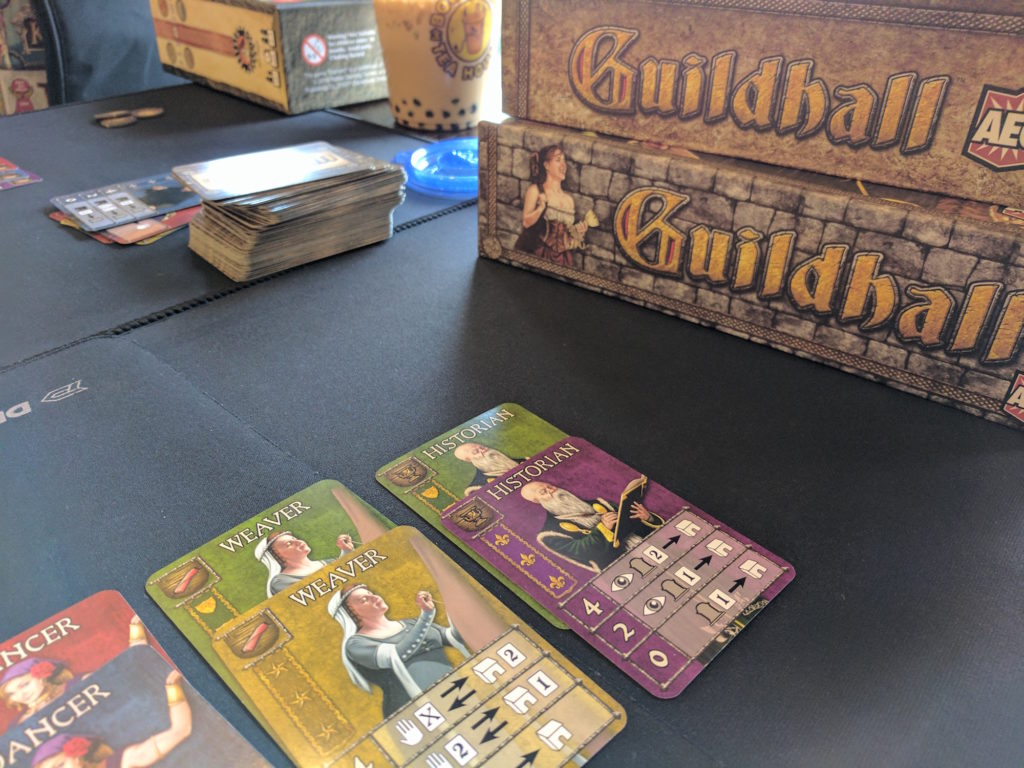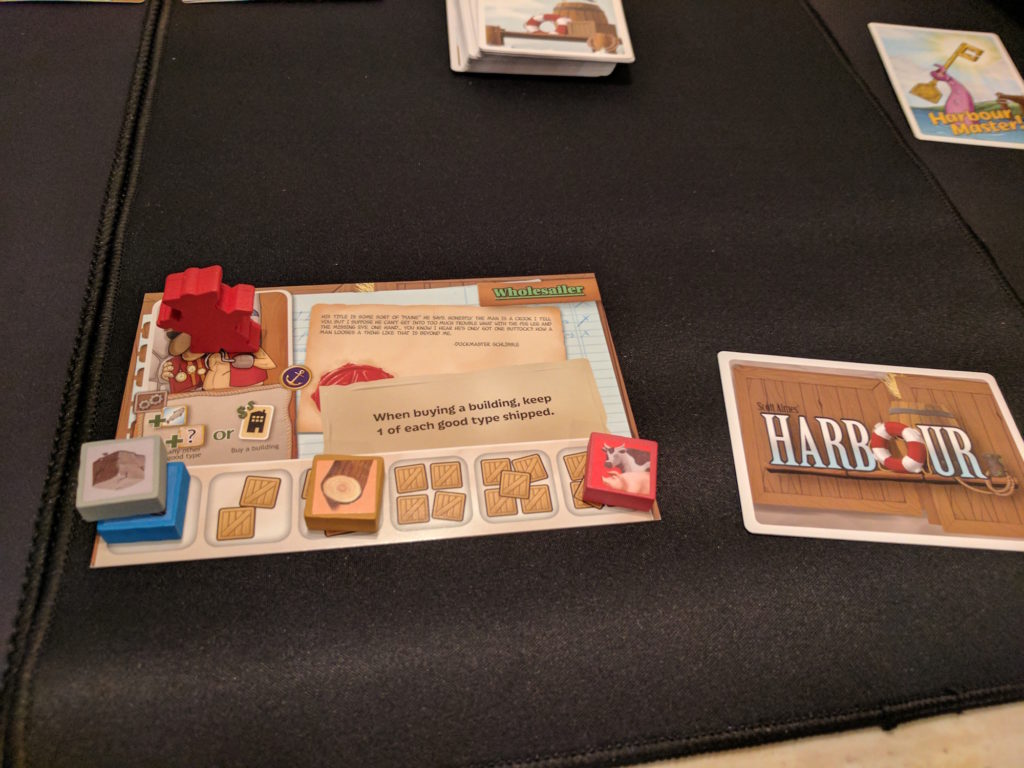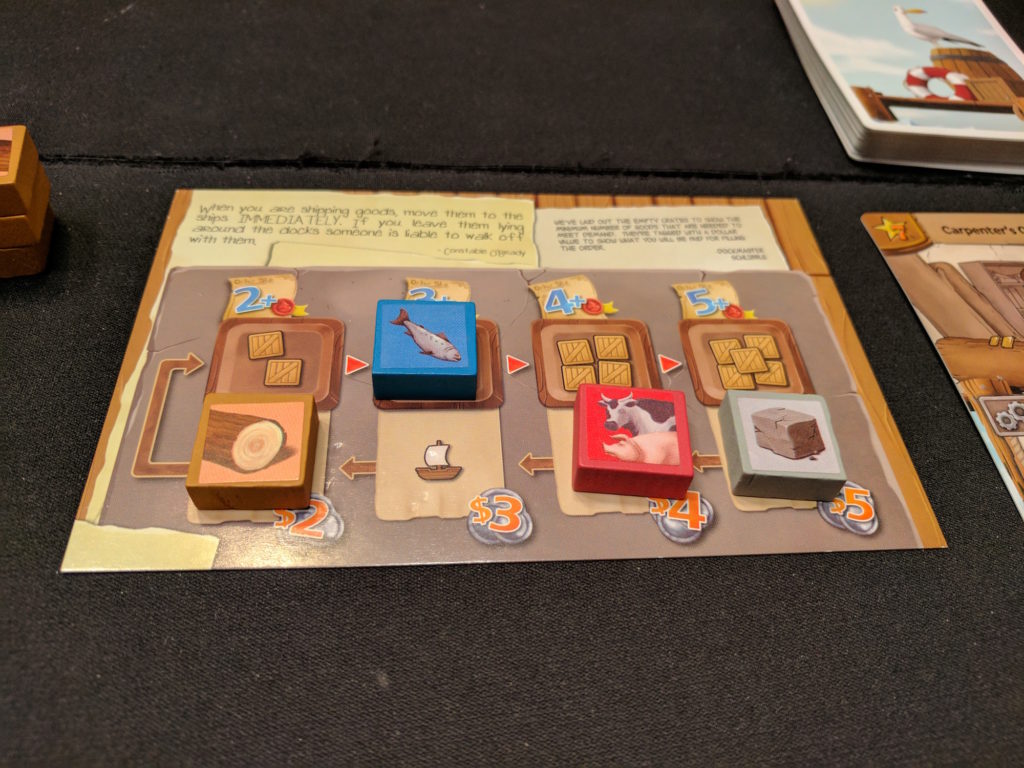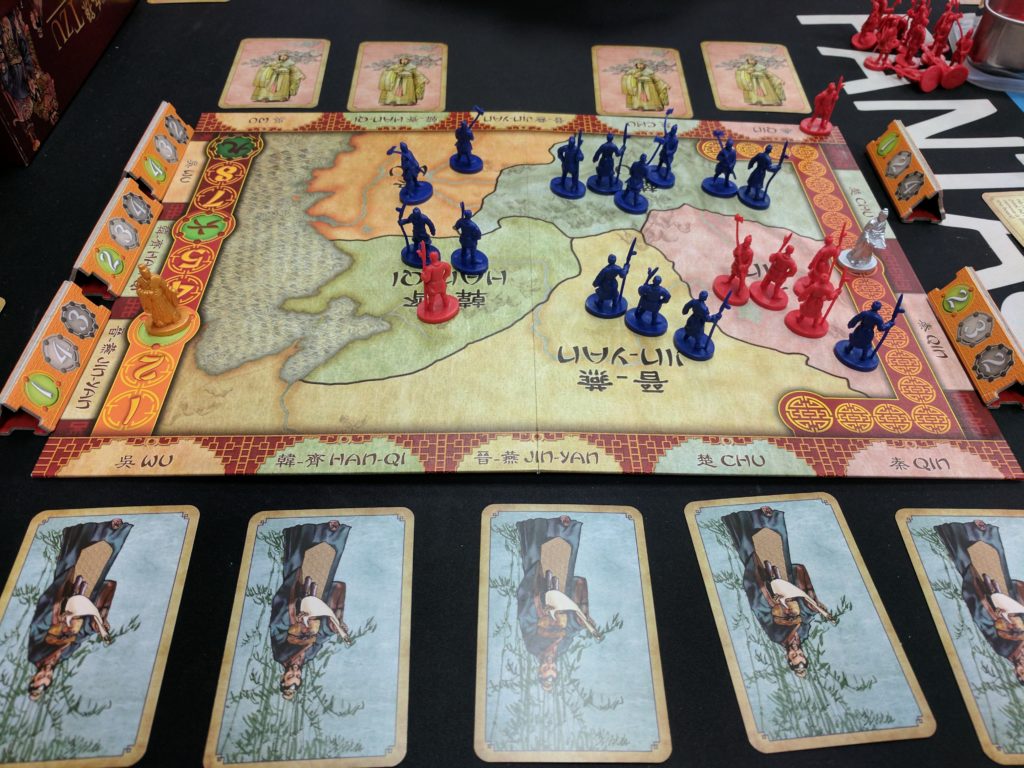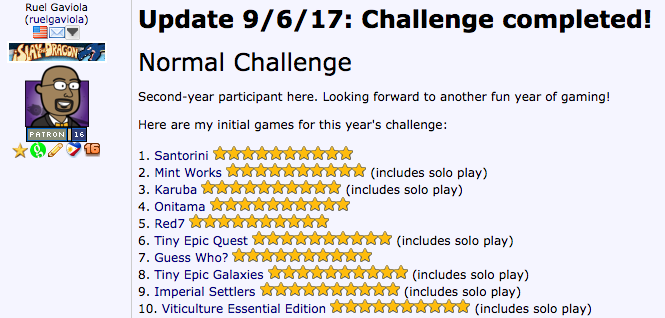
Over on boardgamegeek.com they run a 10×10 challenge, in which participants attempt to play 10 different games at least 10 times each during the year. I did it last year and like the Lakers winning championships back in the day, I repeated the feat this year.
Here’s are quick thoughts on the 10 games on my list. Thanks to my wife, nephew and niece, and regular gaming buddies (two on Twitter: Daryl and Oscar) for helping me finish my list.
Santorini. One of my favorite abstract games ever. The game is ridiculously easy to learn: on your turn you move to any adjacent square, then you build on any adjacent square; to win, you must move up to the third level of any building. That’s it. It has surprising depth and lots of replayability due to its God Power cards, which add new moves, abilities, and/or win conditions for each player. Simply brilliant. (25 plays)
Mint Works. Everyone I’ve played Mint Works with has loved it. It’s a stripped-down-to-basics worker placement game that fits inside an Altoids tin. Games take no longer than 15 minutes, but it always manages to satisfy that worker placement itch. (10 plays)
Karuba. This was an insta-hit with my wife and our extended family of gamers. The tile call-outs reminds me of bingo, while the puzzle-like game play is always a blast, as each player tries to guide their adventurer to their temples while scooping up gems. (10 plays)
Onitama. Another abstract that gets bonus points for its terrific, road-trip-friendly packaging. While Santorini provides more depth and replayability, Onitama is even easier to learn: play a card and move any of your pieces according to the card’s directions while trying to capture your opponent’s master pawn or moving your master pawn to your opponent’s side. It plays faster than Santorini and I’m happy that both are in the Gaviola Game Library. (18 plays)
Red7. Any fan of card games should give Red7 a try. It’s a quick filler-type game, but has lots of interesting decisions throughout a game, thanks to its unique card play. Each card can be used in multiple ways so you’re always trying to find just the right card to play on your turn. The win condition is simple: be the last person standing. (17 plays)
Tiny Epic Quest. I love the Tiny Epic series of games. Scott Almes and Gamelyn Games manage to pack a lot of game into small boxes and Tiny Epic Quest is the best of the lot. I enjoy the puzzle-like nature of the Day Phase as you try to complete Movement Quests, but it’s the dice-chucking, push-your-luck Night Phase to complete Treasure Quests that’s an absolute blast. (28 plays)
Guess Who? My wife and I took a weekend cruise to Mexico earlier this year and the ship had a lounge that had a few shelves of board games. Unfortunately, it was multiple copies of chess, checkers, Connect Four, and Guess Who?. Thankfully, we were too busy chillaxing and enjoying the trip to care about how shoddy the selection was. We did, however, play 10 straight games of Guess Who?, so at least I was able to get my board game fix. (10 plays)
Tiny Epic Galaxies. No surprise here: I played another Tiny Epic game 10 times this year. This was my favorite in the series until I got Tiny Epic Quest. Galaxies is a lot of dice chucking, which always makes me happy. The solo game is fun (although TEQ has also supplanted it as my favorite of the series) and the Beyond the Black expansion added some nice touches to it, including new ships and abilities, and set collection and push-your-luck mechanisms. (14 plays)
Imperial Settlers. I’m not sure what I expected with Imperial Settlers, but I heard a lot of good things about it and won an auction for it last year. I like the civilization building aspect, along with card drafting. As the game progresses it becomes a good brain-burning exercise as you try to squeeze as much as you can out of each of your cards. (16 plays)
Viticulture Essential Edition. I lucked out last year and found a BGG user who had a brand new copy for half price. Not sure why I waited until this year to play it, but it was love at first play; the theme and mechanisms blend in so well together. It’s a classic of the worker placement genre and easily makes it into my Top Five Games Ever. When I added the Tuscany Essential expansion a few months later, it took the game to a whole new level. (36 plays)
